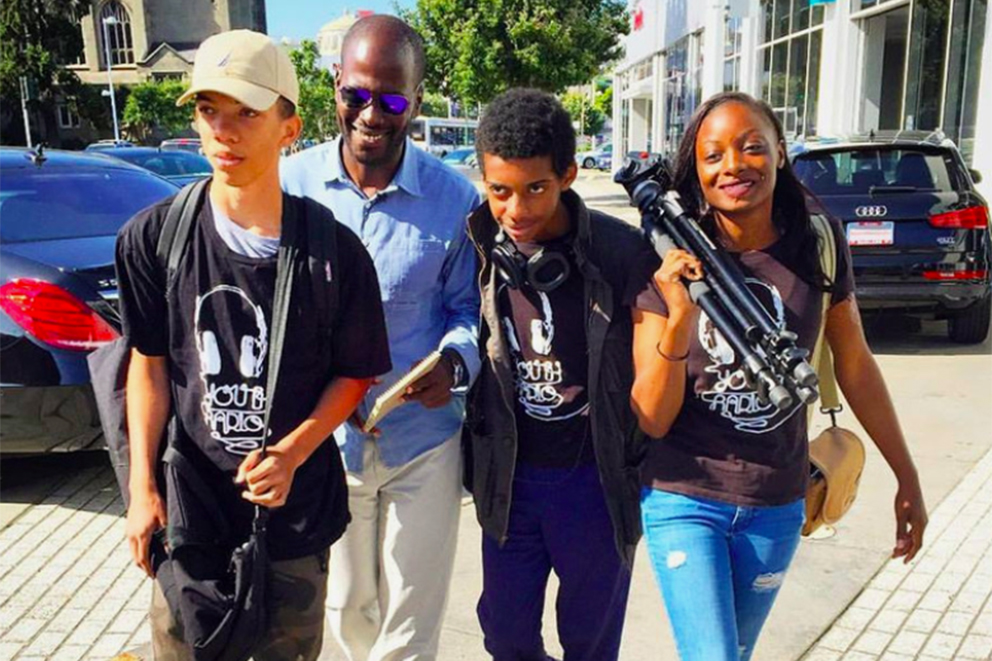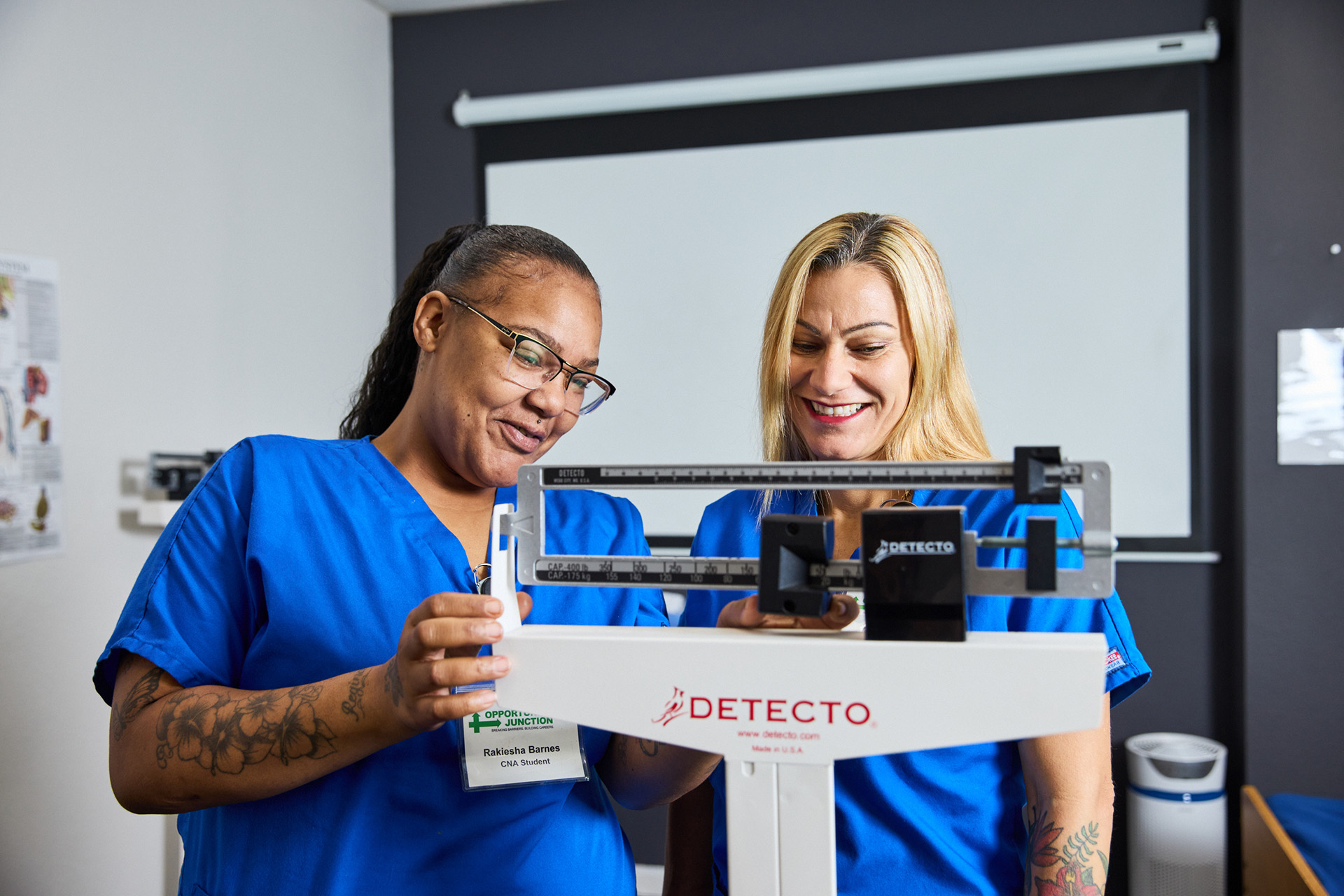Kaiser Permanente awards $2 million to raise public understanding of mental health and overall well-being. Pictured, Youth Radio reporters in the field with a journalist.
Growing up can be tough. Having someone to talk to can make all the difference.
According to the Journal of Psychiatric Research, 1 in 10 children and adolescents suffer with mental health difficulties at any given time, yet less than 1 in 3 of those affected seek treatment. So community members — a barber, a coach — often provide that emotional support.
Kaiser Permanente Northern California recently awarded Youth Radio, a Peabody Award-winning nonprofit media enterprise and learning institution, $90,000 to empower local youth to tell these often-overlooked stories — about what it’s like for community members to step into a counseling role — through high-impact photojournalism, radio interviews, and other mixed-media storytelling techniques.
This grant to Youth Radio is part of Kaiser Permanente Northern California’s newly announced $2 million investment to support 25 community based organizations that are working to reduce the stigma around mental illness.
“Without the dedicated support from Kaiser Permanente, we couldn’t craft this important work,” said Meaven McGovern, director of Arts Pathway and Youth Outcomes at Youth Radio. “It’s inspiring that Kaiser Permanente is so aligned with what we do and made a decision to highlight what is happening in our communities.”
Dismantling Stigma
According to the U.S. Department of Health and Human Services, 1 in 5 American adults has experienced a mental health issue, and 1 in 25 Americans live with a serious mental illness, such as schizophrenia, bipolar disorder, or major depression. One of the significant barriers to accessing care is the social stigma associated with mental illness.
Kaiser Permanente’s $2 million investment will support community organizations that are working to address these issues through trainings, public forums, and awareness campaigns that are customized for specific populations. This is the first part of a 3-year initiative.
“Stigma is influenced by our cultural belief systems and it impacts our decisions to seek care, even in times of crisis,” said Yener Balan, MD, FAPA, executive director of Behavioral Health for Kaiser Permanente in Northern California. “Kaiser Permanente believes that a person’s culture should be at the center of their health care experience, not a barrier to getting the care they need.”
Yvette Radford, vice president of External and Community Affairs for Kaiser Permanente Northern California, said that addressing stigma is a major priority for Kaiser Permanente, and that the investments in Northern California are designed to complement the Find Your Words campaign the organization launched in 2016 with partners including the National Alliance on Mental Illness, National Suicide Prevention Lifeline, Crisis Text Line, and Mental Health America.
Helping the Community Thrive in Innovative Ways
The staff at Youth Radio appreciate that it was up to the grantees to define the actual medium of their projects, the targeted population they wished to serve, and to have creative freedom within that framework.
“More than half of our young people are born at Kaiser Permanente or receive their care there,” said McGovern. “Kaiser Permanente touches so many lives, literally, and it’s beautiful to see the organization step into this leadership role in the community. It’s more than just addressing medical needs. It’s about helping people become who they want to be.”
“We hope to reach as many people as possible with these efforts,” said Radford. “Equally important to us is discovering innovative approaches for dispelling the mental illness myths and misunderstandings that keep people from reaching their best overall health.”
Learn more about Kaiser Permanente’s commitment to reducing stigma around mental illness.





This Post Has 3 Comments
People with mental illness should not be scapegoated when there are shootings.
“The overwhelming majority of people with mental illnesses are not violent, just like the overwhelming majority of all people are not violent. Only 4 percent of the violence—not just gun violence, but any kind—in the United States is attributable to schizophrenia, bipolar disorder, or depression (the three most-cited mental illnesses in conjunction with violence). In other words, 96 percent of the violence in America has nothing to do with mental illness.”
Untangling Gun Violence From Mental Illness NAMI site
If you are in a crisis, reach out. If you are depressed, get help. These illnesses are treatable. You do not have to suffer alone.
Elizabeth McBride, RN
I work in Child Psychiatry here at KP and appreciate all KP is doing to make mental health a normal part of life. We have brochures in our waiting room for NAMI. National Alliance on Mental Illness. I want to give a shout out for that organization as well.
https://www.nami.org/
Great article. Thank you.